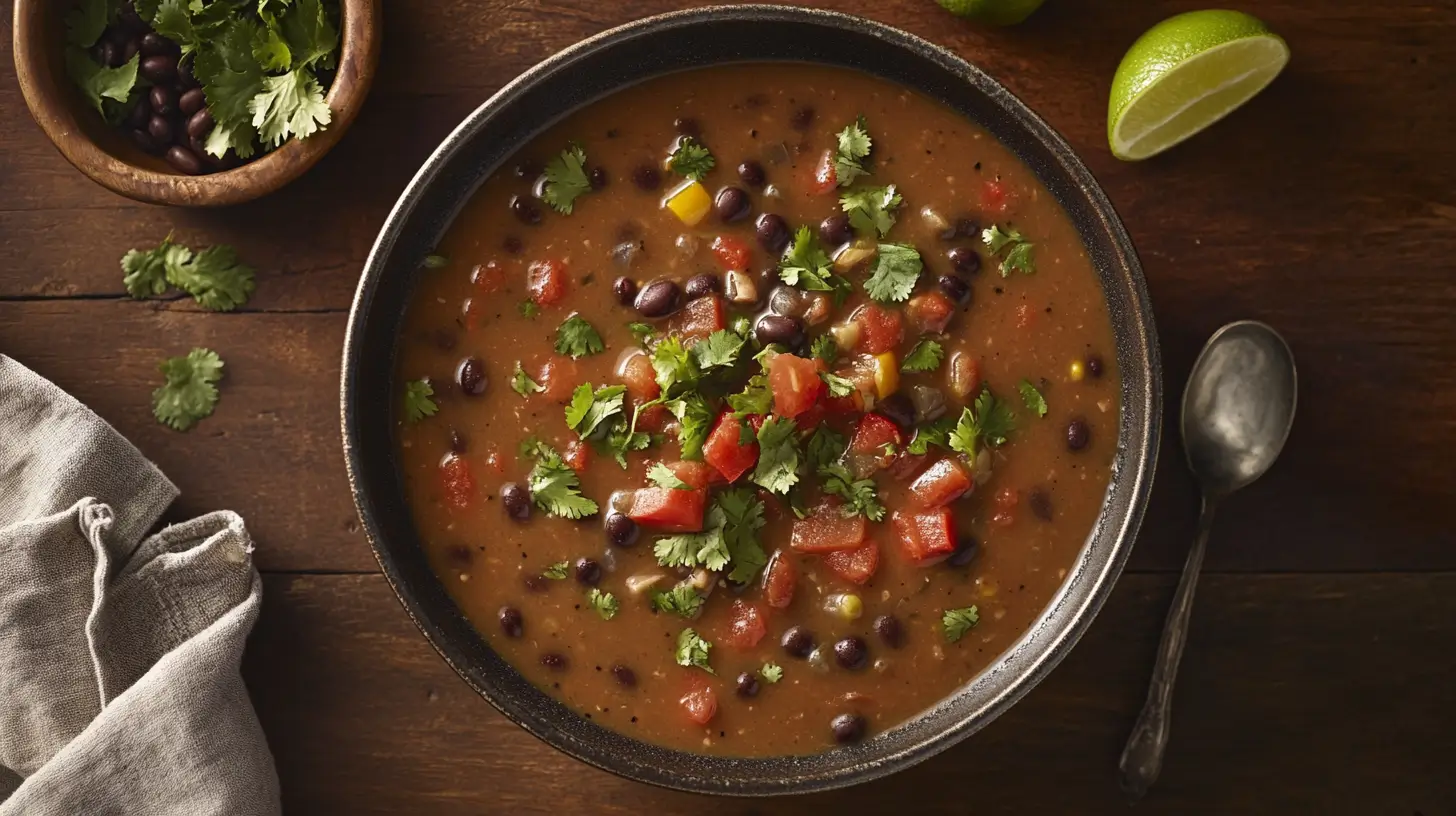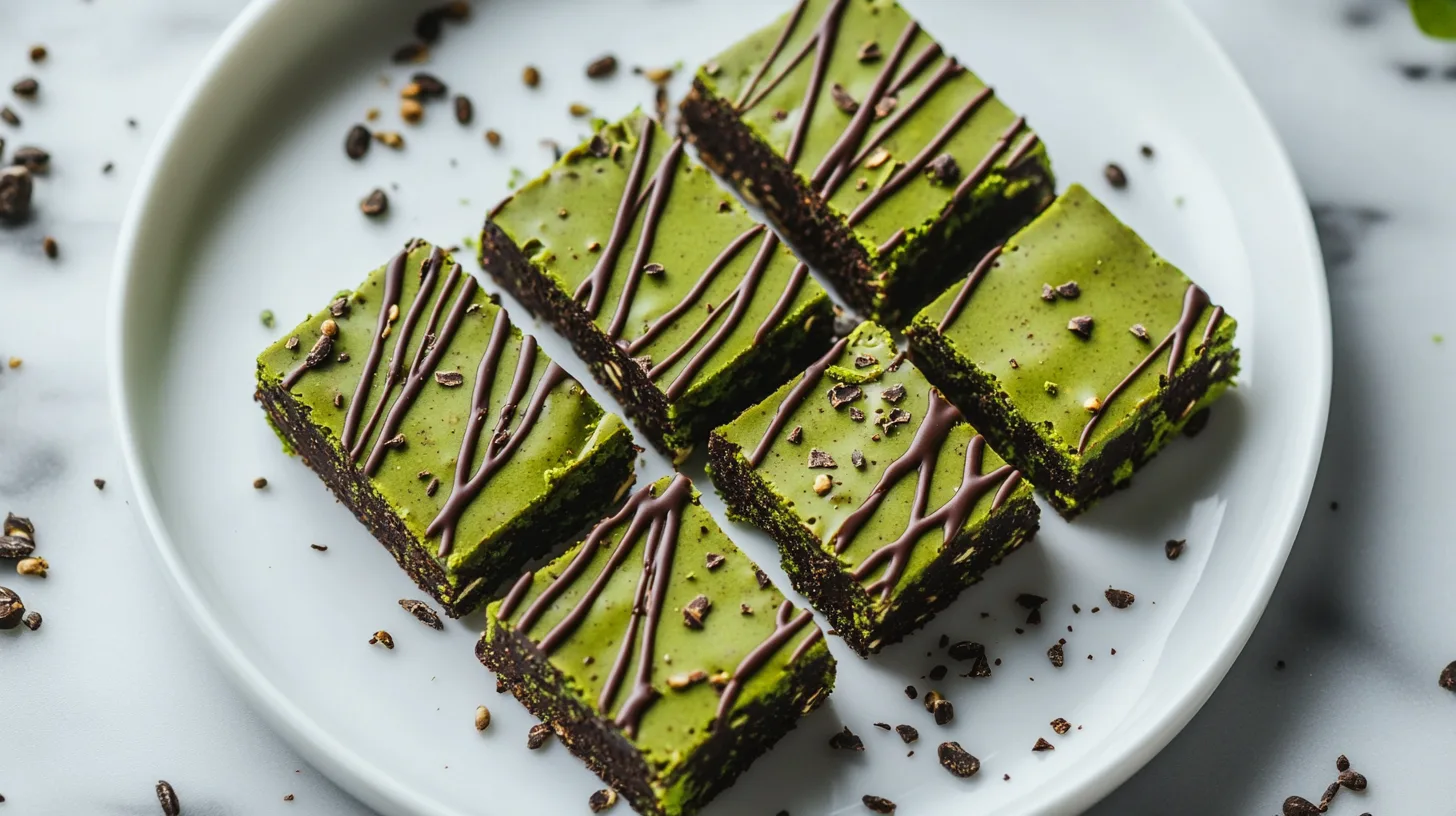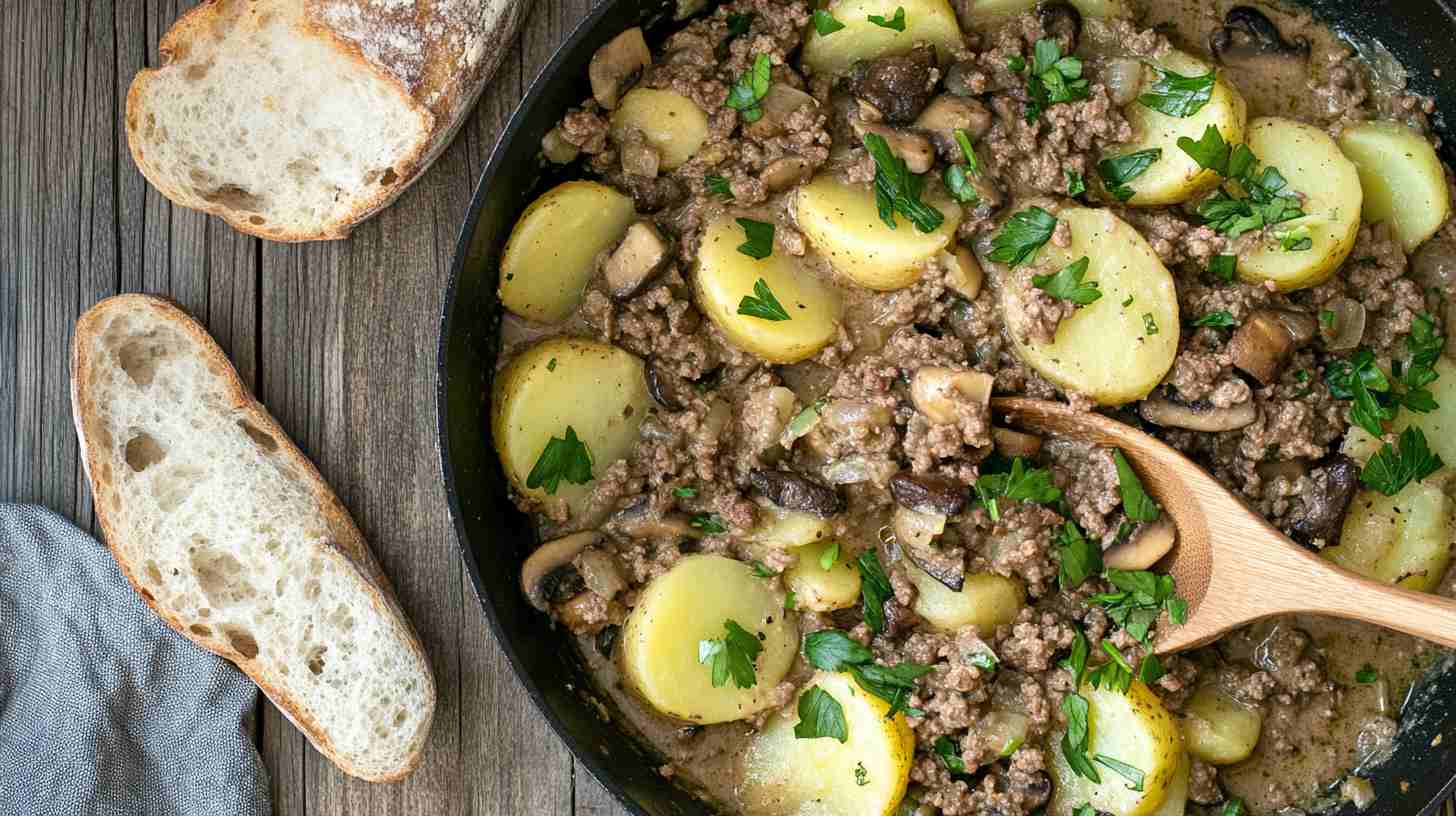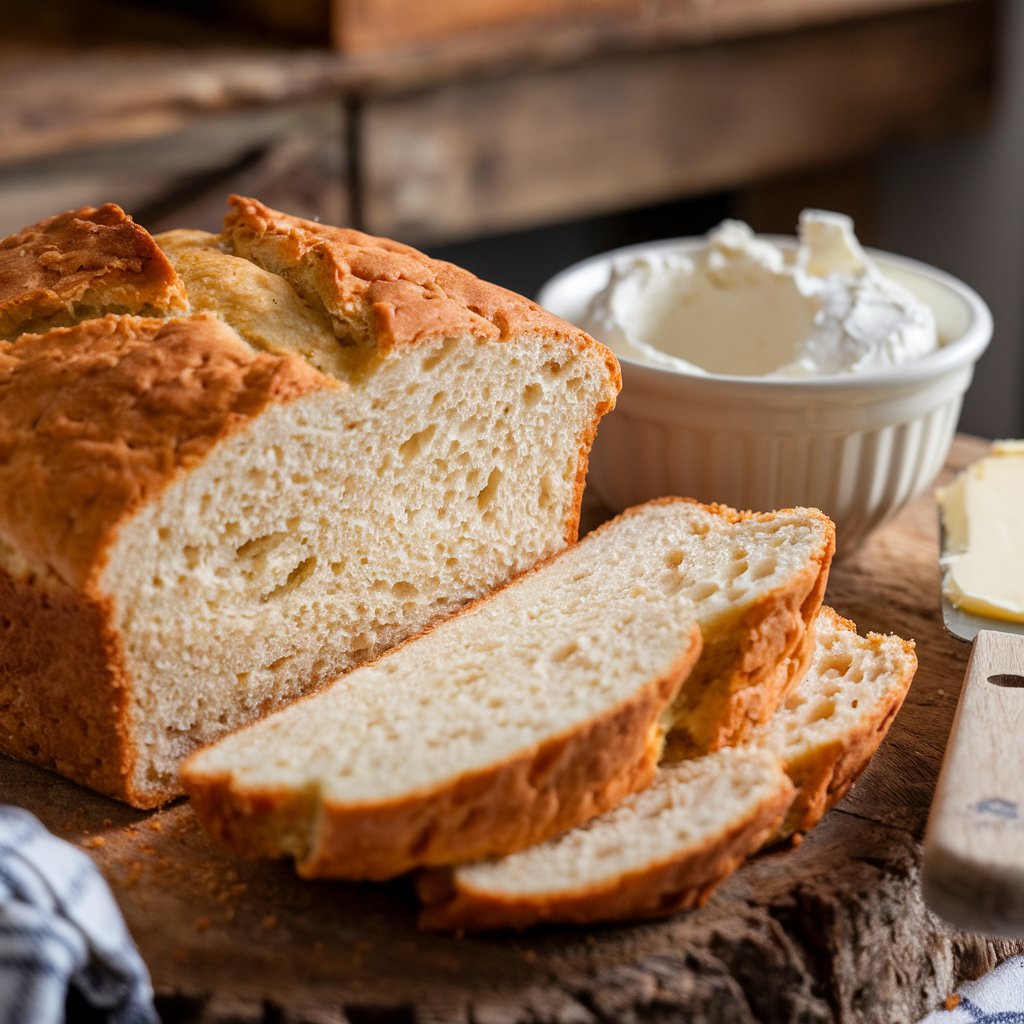Canned black beans are an absolute lifesaver in the kitchen—easy to use, incredibly versatile, and packed with nutrients. But if you’ve ever wondered, “Should I rinse canned black beans for soup?”, you’re not alone.
Some argue that rinsing is necessary to remove excess sodium and improve the texture, while others swear by the flavor-enhancing properties of the canning liquid. So, what’s the right choice? In this guide, we’ll break it all down, exploring the health benefits, culinary impacts, and expert opinions to help you make the best decision for your next soup recipe.
Why Should I Rinse Canned Black Beans for Soup? Key Reasons Explained
Rinsing canned black beans is a common practice for many home cooks, and it’s not without good reason. Let’s look at some of the key benefits.
1. Nutritional Benefits of Rinsing
One of the most talked-about reasons for rinsing canned beans is the potential health benefits.
- Sodium Reduction: The liquid in canned beans can contain a significant amount of sodium, sometimes as much as 400–500 mg per serving. By rinsing, you can reduce the sodium content by up to 40%, while simply draining the beans cuts it by about 33%. This makes rinsing an essential step for those watching their salt intake.
- Heart Health: A lower sodium content is better for individuals managing hypertension or heart conditions.
- Better Nutritional Profile: By rinsing off the liquid, you also remove any added preservatives or stabilizers, ensuring a cleaner, healthier addition to your soup.
2. Culinary Benefits of Rinsing
Beyond health, rinsing canned beans can also improve the taste and texture of your dishes.
- Improved Texture: The starchy liquid can leave beans feeling slimy, which might not be ideal for certain dishes like soups with clear broths. Rinsing removes this residue, giving your beans a clean, matte texture that blends seamlessly.
- Better Flavor Control: By rinsing off the salty liquid, you gain full control over the seasoning of your soup. This allows you to adjust salt levels to suit your preferences or the recipe’s requirements.
- Enhanced Appearance: Rinsed beans look more appealing, with a uniform texture and no sticky film.
3. Consistency in Soups
In soups, the liquid from canned beans can thicken the broth and make it cloudy. If you’re aiming for a cleaner, lighter consistency, rinsing the beans is the way to go.
When Should I Skip Rinsing Canned Black Beans for Soup?
While rinsing has its benefits, there are also good reasons to keep the liquid in certain scenarios.
1. The Liquid as a Thickener
The starchy canning liquid can act as a natural thickener, adding body to soups and stews. If you’re making a dish like black bean chili or a creamy bean soup, keeping the liquid can enhance the texture.
2. Adding Depth to the Flavor
The liquid absorbs some of the beans’ natural flavor during the canning process, which can add a subtle richness to your dish. Recipes with bold spices, like cumin or smoked paprika, can benefit from the extra complexity this liquid provides.
Recipes Where You Might Keep the Liquid
- Hearty Soups: Such as a robust chili or black bean stew.
- Dips and Spreads: The liquid can make black bean dips smoother and creamier.
- Casseroles: Where a thicker consistency is desired.
Pro Tip: If you decide to skip rinsing, taste your soup as you go. You may need to adjust other ingredients, like salt or stock, to balance the flavor.
Expert Opinions on Rinsing Canned Black Beans for Soup Recipes
So, what do the experts say? Nutritionists and chefs alike have weighed in on this age-old debate, offering a range of perspectives.
Nutritionists’ Take
Most nutritionists agree that rinsing canned beans is a smart move, especially for those managing their sodium intake.
- Lower Sodium Levels: Rinsing can make a significant difference for individuals following low-sodium diets or looking to maintain healthy blood pressure levels.
- Cleaner Eating: Rinsing removes preservatives and additives found in the liquid, making the beans a more natural and wholesome ingredient.
Chefs’ Perspective
Culinary professionals are often split on the issue.
- Pro-Rinse Chefs: These chefs emphasize the importance of rinsing to control the flavor, texture, and seasoning of dishes. In recipes like black bean soup with a clear broth, rinsing ensures a clean, cohesive dish.
- No-Rinse Advocates: Others argue that the canning liquid can enhance the dish’s flavor and consistency, particularly in heartier recipes.
Chef’s Tip: A balanced approach works well. Rinse the beans for light, delicate soups and salads, but consider keeping the liquid for thick, savory dishes.
Step-by-Step Guide to Rinsing Canned Black Beans
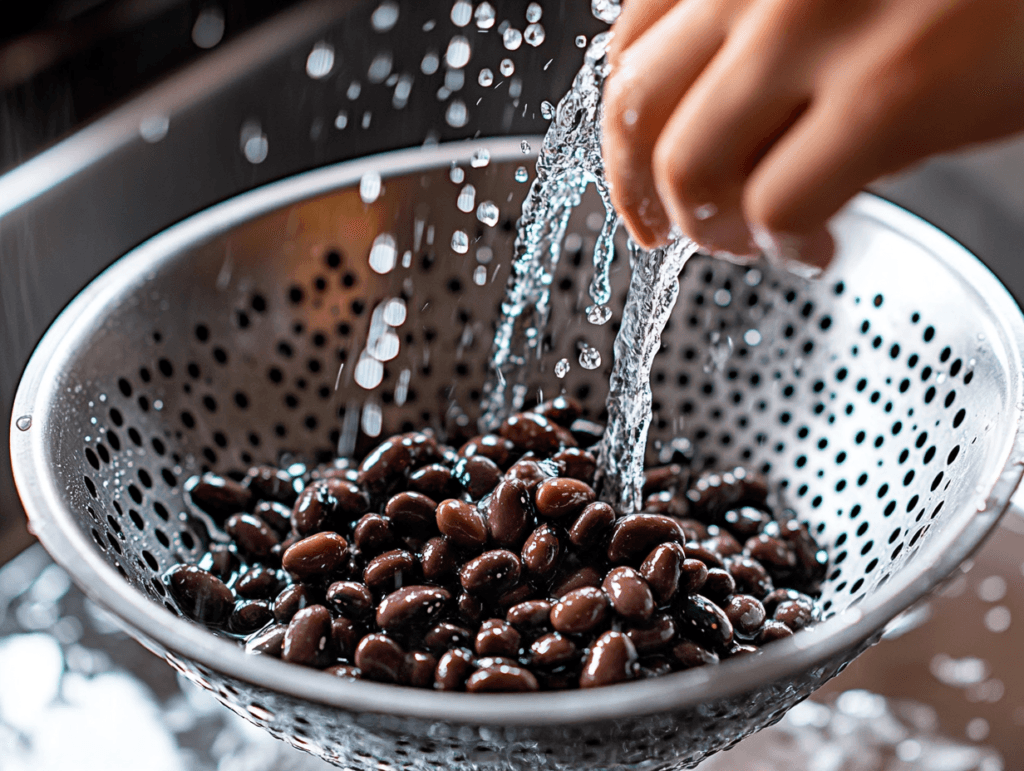
If you’ve decided to rinse your beans, here’s how to do it effectively:
What You’ll Need
- A can opener.
- A colander or strainer.
- Cold running water.
Steps to Rinse Black Beans
- Open the Can: Carefully remove the lid using a can opener.
- Drain the Liquid: Pour the beans into a colander placed in the sink, letting the liquid drain out completely.
- Rinse Under Cool Water: Run cold water over the beans, gently shaking the colander to wash away the starchy liquid.
- Check for Clarity: Continue rinsing until the water runs clear, ensuring all residue is removed.
- Dry the Beans: Shake the colander to remove excess water. If you’re not using the beans immediately, pat them dry with a paper towel or store them in an airtight container.
Why This Matters
Rinsing beans properly not only improves their flavor but also helps them integrate more smoothly into your recipe, avoiding clumps or overly salty bites.
The Role of Sodium and Health Considerations
Sodium content in canned beans is a critical factor for health-conscious individuals.
High Sodium Levels in Canned Beans
Canned beans are often packed in a liquid containing salt to preserve their flavor and texture. One serving can contain anywhere from 200 to 500 milligrams of sodium. While this might not seem like much, it adds up quickly, especially in soups where multiple cans are often used.
Why Rinsing Matters for Sodium
Rinsing canned black beans can reduce their sodium content by up to 40%, making them a healthier choice for anyone watching their salt intake. This is particularly important for:
- People with high blood pressure.
- Those following a heart-healthy or low-sodium diet.
- Anyone looking to avoid the bloating and water retention that can come from consuming too much salt.
Alternatives to Rinsing
If you want to skip the rinsing step but still reduce sodium:
- Opt for low-sodium or no-salt-added canned black beans.
- Dilute the canning liquid with water or stock before adding it to your soup.
The Flavor Debate: Should I Rinse Canned Black Beans for Soup or Not?
Whether you rinse canned black beans or not has a significant impact on the flavor and texture of your dish.
How Rinsing Affects Flavor
- Rinsed Beans: Provide a clean, neutral taste that pairs well with light broths and fresh ingredients.
- Unrinsed Beans: Contribute a salty, savory depth to dishes, which can complement bold seasonings like cumin, garlic, or smoked paprika.
Impact on Texture
- Rinsed Beans: Feel firmer and less slimy, integrating seamlessly into soups without clumping.
- Unrinsed Beans: The starchy liquid can make soups thicker and more cohesive, especially for creamy or hearty recipes.
Pro Tip: Experiment by rinsing half the beans in a recipe. This approach allows you to enjoy the benefits of both methods.
Preparing Canned Black Beans for Recipes
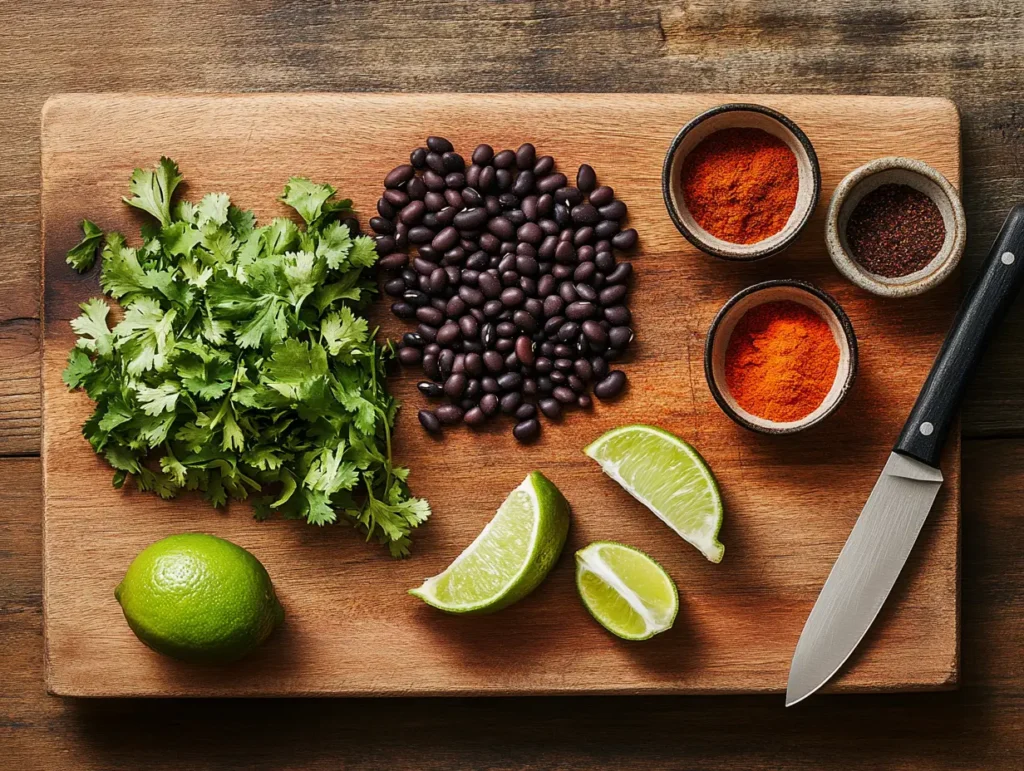
Preparation is key to getting the best results from canned black beans.
Simple Preparation Tips
- Rinse and Drain for Light Recipes: Such as salads, burritos, or clear soups.
- Enhance Flavor with Seasoning: After rinsing, toss beans with spices like chili powder, cumin, or oregano to boost their flavor profile.
Incorporating into Soups
For soup recipes, rinsed beans are an excellent addition to brothy or vegetable-based soups, while unrinsed beans can enhance heartier options.
Example Recipes
- For Rinsed Beans: Try the fresh, vibrant Purple Black Bean Soup Recipe, which highlights the beans’ clean taste.
- For Unrinsed Beans: Go for the rich and savory Spicy Beef Bean Soup Recipe that benefits from the added body and flavor of the canning liquid.
Cooking with Canned Beans: Dos and Don’ts
Dos
- Do Choose Low-Sodium Options: These give you greater control over seasoning.
- Do Rinse for Delicate Dishes: Especially if you’re making salads or soups with a light broth.
- Do Taste as You Go: If you skip rinsing, check the salt levels frequently to avoid over-seasoning.
Don’ts
- Don’t Add All the Liquid Without Tasting: The liquid is salty and may overpower your dish.
- Don’t Assume All Recipes Need Rinsing: Some, like chili or creamy soups, benefit from the canning liquid’s consistency.
Black Bean Soup Preparation Tips
Canned black beans are a popular ingredient in soups, offering protein, fiber, and a satisfying texture. Here are some tips to maximize their potential:
Choosing the Right Beans
- Use low-sodium or no-salt-added options if you plan to skip rinsing.
- Regular canned beans work fine if you plan to rinse and season them yourself.
Balancing Flavors
- Pair black beans with bold spices like smoked paprika, cumin, or chipotle powder for depth.
- Use fresh herbs like cilantro or parsley to brighten the dish.
Recipes to Try
- Make your soup stand out with the Spicy Beef Bean Soup Recipe for a bold, hearty dinner.
- For a lighter option, the Purple Black Bean Soup Recipe is a fantastic choice.
The Sustainability Angle: Using Canned Bean Liquid
For eco-conscious cooks, the liquid in canned black beans doesn’t have to go to waste.
Creative Uses for Canning Liquid
- Thicken Soups and Stews: Add a few tablespoons for extra body.
- Use in Vegan Recipes: Similar to aquafaba, black bean liquid can be used as a binding agent in vegan cooking.
- Flavor Boost: Incorporate into rice, quinoa, or other grains for a nutrient-packed cooking liquid.
By finding ways to repurpose the liquid, you can reduce waste and enhance your meals.
Common Misconceptions About Rinsing Canned Black Beans for Soup
Myth 1: Rinsing Removes Nutrients
This is only partially true. While some nutrients might be lost in the rinsing process, the trade-off for reduced sodium and improved flavor makes it worthwhile for most recipes.
Myth 2: The Liquid is Essential for Every Dish
While the liquid can enhance certain dishes, it’s not a universal necessity. Recipes like salads, burritos, and light soups often benefit more from rinsed beans.
Myth 3: Rinsing Takes Too Much Time
In reality, rinsing beans takes less than a minute and can drastically improve the taste and healthfulness of your dish.
Alternatives to Canned Black Beans for Soup Recipes
For those who prefer to avoid canned goods altogether, dried black beans are an excellent option. However, if you’re wondering, “Should I rinse canned black beans for soup?”, dried beans offer a clear advantage since you can skip the canning liquid entirely. Additionally, they allow for more control over texture, flavor, and sodium levels, making them a fantastic alternative.
Benefits of Dried Beans
- Cost-Effective: Cheaper per serving than canned beans.
- No Additives: No preservatives, stabilizers, or added sodium.
- Customizable Texture: You can cook them to your preferred firmness.
How to Prepare Dried Beans
- Soak beans overnight in plenty of water.
- Drain and rinse thoroughly.
- Cook in fresh water until tender, usually 1–2 hours.
Dried beans require more effort but deliver unmatched flavor and texture.
So, should you rinse canned black beans for soup? It depends! Rinsing is an excellent choice for reducing sodium, improving texture, and gaining control over your dish’s flavor. However, if you’re making a hearty chili or stew, the canning liquid can enhance the dish’s thickness and depth.
Ultimately, the decision comes down to your recipe and personal preference. Experiment with both methods to discover what works best for you.
FAQs About Rinsing Canned Black Beans for Soup
- Does rinsing canned black beans affect their flavor?
Yes, rinsing removes the salty liquid, resulting in a cleaner taste that’s easier to season to your liking. - What happens if I don’t rinse canned black beans?
Your soup may taste saltier, and the liquid could thicken the broth. This might be desirable in certain recipes but not all. - Can I use the canned bean liquid in soups?
Absolutely! The liquid adds body and flavor to hearty soups and stews. - Is rinsing canned black beans necessary for low-sodium diets?
Yes, rinsing can reduce sodium levels by up to 40%, making it a great choice for low-sodium meals. - How do I prepare black beans from scratch?
Soak dried beans overnight, rinse them, and cook until tender for a fresh, additive-free option.

